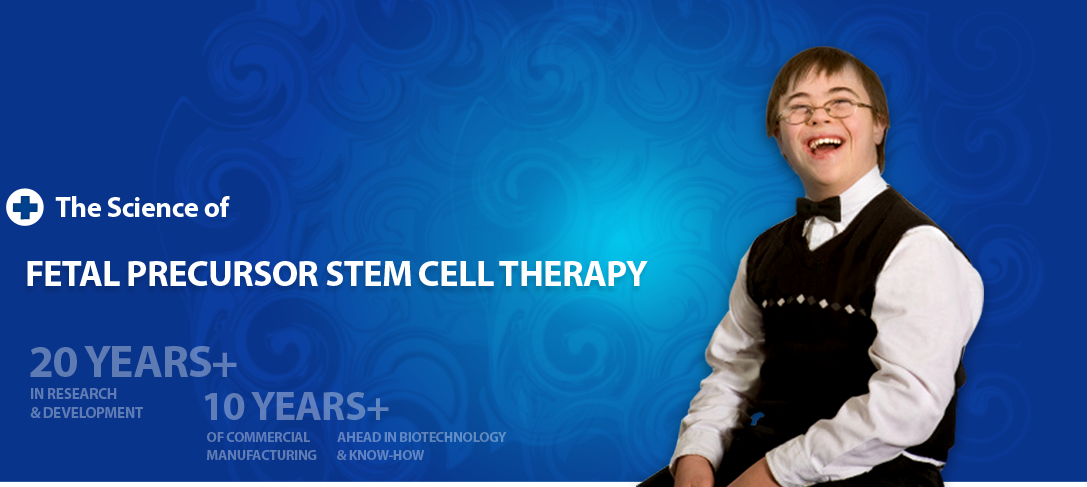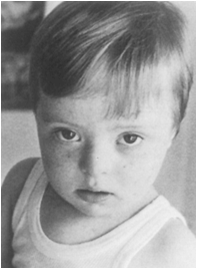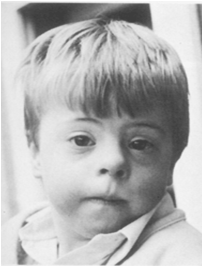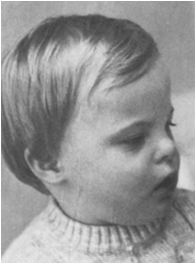DOWN SYNDROME BEFORE AND AFTER TREATMENT |
| At the age of 3 years, a disfiguring physiognomy, standing and walking only with support, patient doesn't recognize the parents. At this time, she, after-ripening-treatment of Haubold, begins. Four experts negate the possibility of the treatment. The case goes before the German Federal Social Court. |
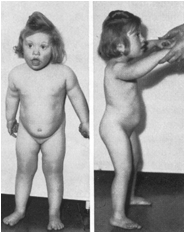 |
At 14 years of years, Uta attends the 4th grade of a normal school, reads, writes and counts (with mistakes) up to 100. At 21 years of age Uta works in a hospital as a nursing assistant, rides a bus daily to work in the city, and even has a medical insurance that covers all but the treatment of any disease(s) due to Down syndrome. |
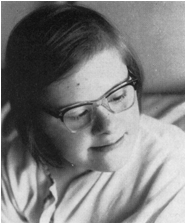 |
 |
Comparison of a physiognomy of a male who began treatment late at the age 9 1/2 (Before), and his condition at the age 10 1/2 (After). |
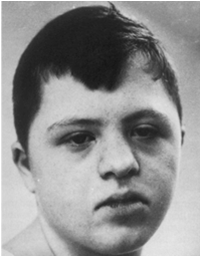 |
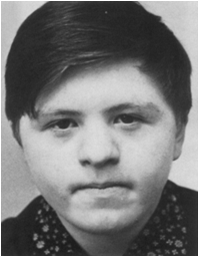 |
Before |
After |
 |
Physiognomy of Down syndrome child that received treatment from four to ten years of age
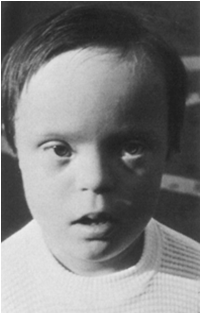
Before |
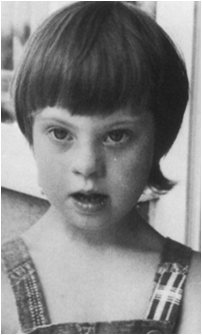
During |
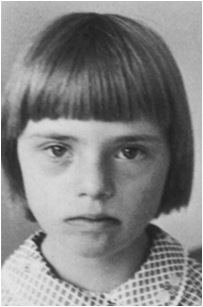
After |
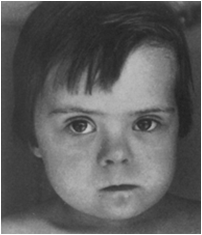
Before |
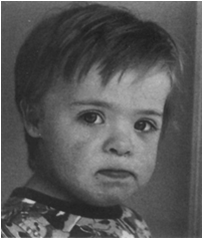
During |
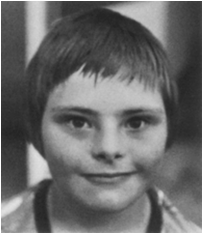
After |
|
|
 |
Physiognomy of Down syndrome child treated from late infancy on
|
|
 |
Physiognomy of Down syndrome child treated since infancy |
|
|
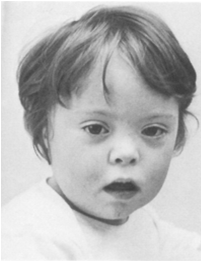
Before |
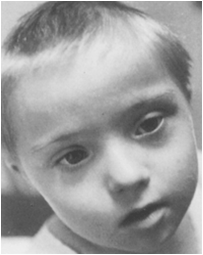
During |
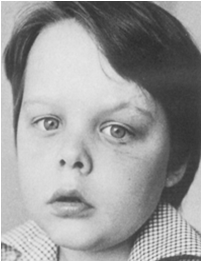
After |
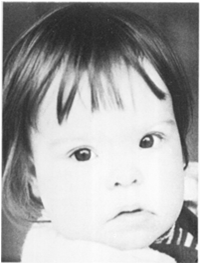
Before |
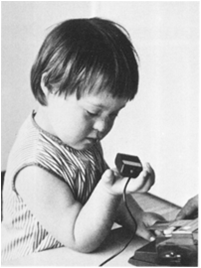
During |
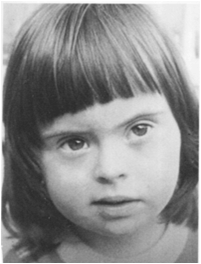
After |
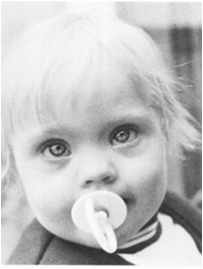
Before |
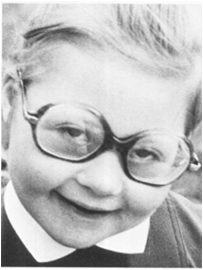
During |
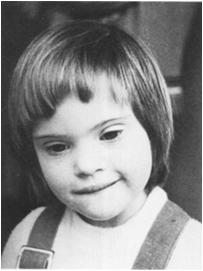
After |
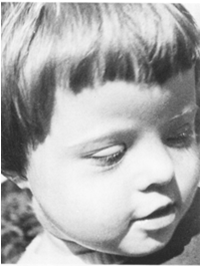
Before |
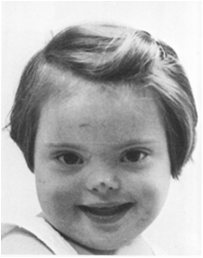
During |
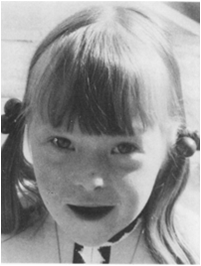
After |
|
 |
Physiognomies of Down syndrome children, whose treatment began after 2 years of age, now between 5-12 years of age |
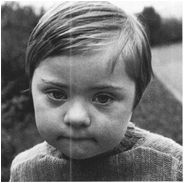
Before |
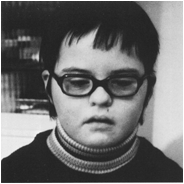
During |
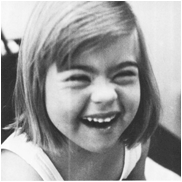
After |
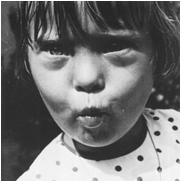
Before |
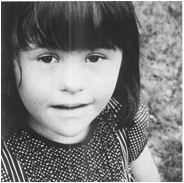
During |
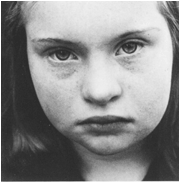
After |
|
 |
Pigmentary type of Down syndrome (Traviata type). Physiognomies at different ages. This type is marked by darker skin pigmentation, dark hair and relatively big, expressive eyes. |
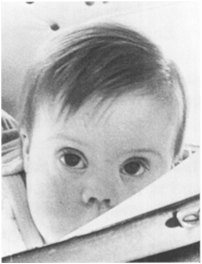
Before |
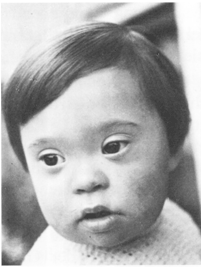 During |
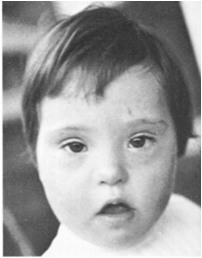 After |
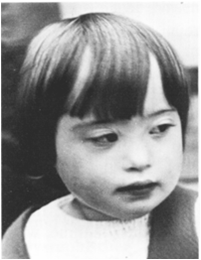
Before |
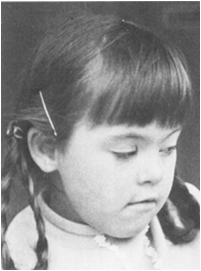 During |
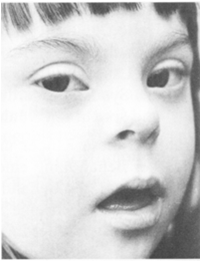
After |
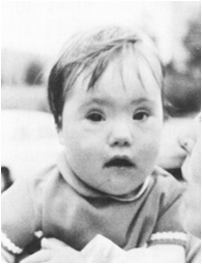 Before |
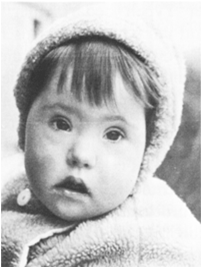 During |
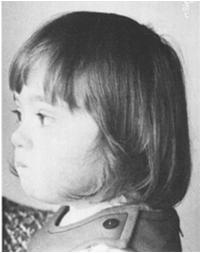 After |
|
 |
Series of photographs of a Down syndrome child from the family album: between 2 and 4 years of age. |
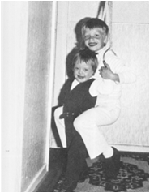 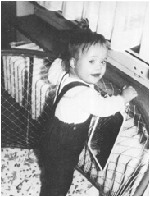
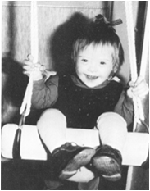 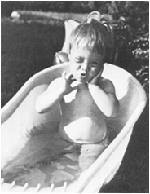 |
 |
Alopecia of the reddish-blond type of Down Syndrome: |
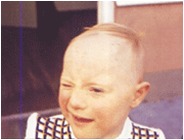
Before treatment at age 6½ |
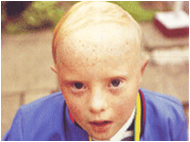
Seven months after the beginning of treatment |
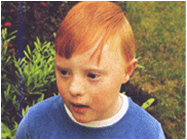
Hair 2½ years after start of treatment |

2½ years after start of treatment |
|
 |
Photographs of an awkward, hypodynamic type of Down Syndrome during the treatment |
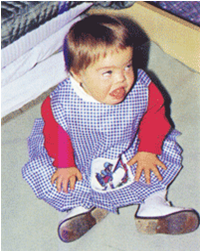
Before
At 1 1/2 years of age; severe expressive (physiognomic) distortion |
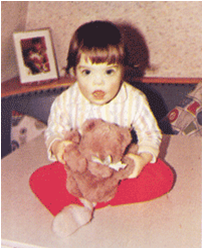
During
At 2 1/2 years of age controlled expression; macroglossia; delay of static development |
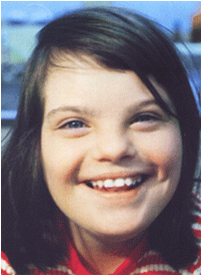
After
At 10 years of age controlled, clear facial expression; patient can speak fluently, reads books, and writes accurately |
|
|
|
